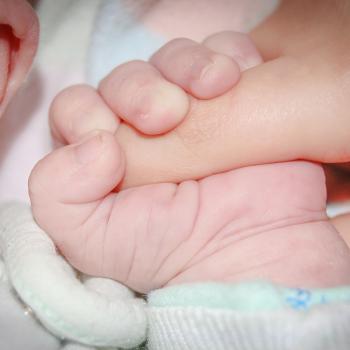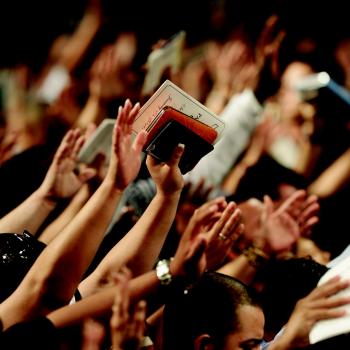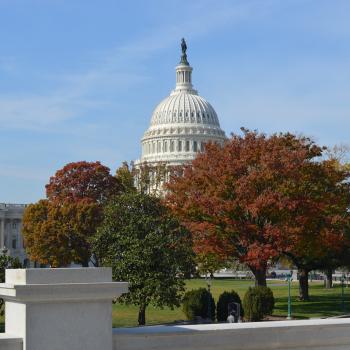To begin with, let me address those headlines from various outlets proclaiming the “slim” or “narrow” Supreme Court decision today, that handed a victory to a Colorado baker in the Masterpiece Cakeshop case.
Guys, a 7-2 decision is neither “narrow” or “slim.” It’s pretty substantial.
Ok, to be fair, there’s a bit more to it, but this is still one that goes in the “win” column for Christian businesses and religious liberty, for this day.
We’ll take it.
The decision was written by Justice Anthony Kennedy. In the view of the majority, the Colorado Civil Rights Commission, in their zeal to oppress the rights of Christians (funny how that works), violated the free exercise clause of the Constitution, by going after baker, Jack Phillips.
By putting their boot on his throat and demanding he go against his moral beliefs to perform a service for a same sex wedding, they goofed. He sued. They lost.
Seriously, “civil rights” people – How do you determine whose rights matter more? Is it a personal thing, or is it truly based on the Constitution and the laws of this land?
Rhetorical question. We already know.
In writing the decision, Justice Kennedy offered:
“The laws and the Constitution can, and in some instances must, protect gay persons and gay couples in the exercise of their civil rights, but religious and philosophical objections to gay marriage are protected views and in some instances protected forms of expression,” the majority opinion said.
“While it is unexceptional that Colorado law can protect gay persons in acquiring products and services on the same terms and conditions as are offered to other member of the public, the law must be applied in a manner that is neutral toward religion.”
So what’s the catch? There’s always a catch, and when the decision is this big, you should always look for it.
Here it is: The decision made today was based on the conduct of the commission, those noble civil rights warriors.
They acted like hate-filled scumbags, rather than reasonable people who felt some wrong had been perpetrated when Jack Phillips refused to bake the cake.
Phillips, in his suit, was looking to have his wedding cakes recognized as “an artistic expression of speech and religion,” therefore, protected by the First Amendment. The court wasn’t ready to go that route, in making their decision.
While stating that Colorado had the right to pass anti-discrimination laws, where they felt a certain group was being targeted for discrimination, this civil rights commission showed what Kennedy called a “clear and impermissible hostility” towards Christianity and Phillips’ beliefs.
Kennedy said comments during public hearings before the commission in the case disparaged Phillips’s faith as despicable and compared his sincerely held religious beliefs to defenses of slavery and the Holocaust.
“This sentiment is inappropriate for a commission charged with the solemn responsibility of fair and neutral enforcement of Colorado’s anti-discrimination law — a law that protects discrimination on the basis of religion as well as sexual orientation,” Kennedy said.
He didn’t come right out and say it, so I will –
Hey, Colorado Civil Rights Commission, you guys need Jesus!
You can’t be a civil rights organization that picks and chooses which constitutionally protected rights you’ll defend, and if you’re attacking one group to defend another, you deserve to lose.
Not just lose, but be disgraced, publicly called out, and disbanded, until actual civil rights defenders, committed to the Constitution and the good of all citizens, impartial and uncorrupted, can be put together.
This “civil rights commission” had an agenda and clear biases. They let their hand slip.
Kennedy went on further to explain today’s decision:
If a member of the clergy were to refuse to perform a same-sex marriage, Kennedy wrote, that would be well understood to be a protected exercise of religion “that a gay person could recognize and accept without diminishment to their own dignity and worth.”
Great news for pastors.
But, he said, “if that exception were not confined, then a long list of persons who provide goods and services for marriages and weddings might refuse to do so for gay persons, thus resulting in a community-wide stigma inconsistent with the history and dynamics of civil rights laws that ensure equal access to goods, services and public accommodations.”
As expected, every “conservative” justice was on board with today’s decision. What was not expected was that two otherwise liberal stalwarts, Stephen Breyer and Elena Kagan, joined in with them.
The two holdouts were Justices Sonia Sotomayor and Ruth Bader Ginsburg, with Ginsburg writing the dissenting opinion.
“Whatever one may think of the statements in historical context, I see no reason why the comments of one or two Commissioners should be taken to overcome Phillips’ refusal to sell a wedding cake to Craig and Mullins,” she wrote.
Well, hang on to that, lady. We all know how you would have voted if the shoe was on the other foot, and even one of those on the commission had uttered such hate towards a gay baker refusing to bake a cake for a Christian wedding.
Interestingly, Justice Clarence Thomas, while voting with the majority, issued a concurring opinion on the ruling, stating that it didn’t go far enough. In his opinion, wedding cakes are a form of artistic expression and should be protected under the First Amendment.
In the 2015 Obergefell v. Hodges case, that legalized same sex marriage, he had argued that there would come a time when that decision clashed with religious liberties.
“This case proves that the conflict has already emerged,” Thomas wrote.
“Because the Court’s decision vindicates Phillips’ right to free exercise, it seems that religious liberty has lived to fight another day. But, in future cases, the freedom of speech could be essential to preventing Obergefell from being used to ‘stamp out every vestige of dissent’ and ‘vilify Americans who are unwilling to assent to the new orthodoxy,’ ” he wrote.
The usual players on the left have chimed in on today’s decision.
House Minority Leader Nancy Pelosi said something interesting:
“The Masterpiece Cakeshop case is about the most fundamental right of all Americans: to be free from persecution and discrimination because of who they are or whom they love.”
Say, by “all Americans” does that include Christians, and by “whom they love” does that include El Shaddai and His Word?
Maybe somebody should ask her.
The couple who brought the case, Charlie Craig and David Mullins of course have to have their time to play the dejected victims in the spotlight.
“We have always believed that in America, you should not be turned away from a business open to the public because of who you are,” they said. “We brought this case because no one should have to face the shame, embarrassment, and humiliation of being told ‘we don’t serve your kind here’ that we faced, and we will continue fighting until no one does.”
Somebody get me a hanky.
First of all, there are other bakeries, and if you’re saying this one business refusing to comply with your worldview prevented you from getting married (I’m assuming the marriage was the main point), then you didn’t actually want to get married. You wanted to attack Christians.
Given today’s decision, I hope the case of the Klein family and their business, Sweet Cakes by Melissa is given another look.
In 2013 an Oregon Court of Appeals upheld an earlier ruling that determined the Kleins, Christian bakers, had violated the state’s anti-discrimination laws, by refusing to bake a wedding cake for two women who wanted to purchase a same sex wedding cake there.
When they refused, the women said they felt “emotionally raped” and the court agreed, awarding them $135,000. It resulted in the Kleins closing the business down.
What was missed in that case is that the Kleins had served the two women before, with no problem. Their objection was to baking a wedding cake, in that they did not want to give the appearance that they were participating in a ceremony that violated their religious beliefs.
The women still had their “wedding.” Presumably, they had cake that was baked somewhere else, so this wasn’t a case of their emotional fragility. It was an attack on a Christian business.
Earlier this year, the family filed another appeal with the Oregon State Court. Perhaps today’s decision can be used to benefit them, as well.
For as narrow as the parameters of today’s decision may have been, at least it’s something that can be worked with, and it’s another arrow in the quiver of Christian defense lawyers who are fighting multiple such cases.










